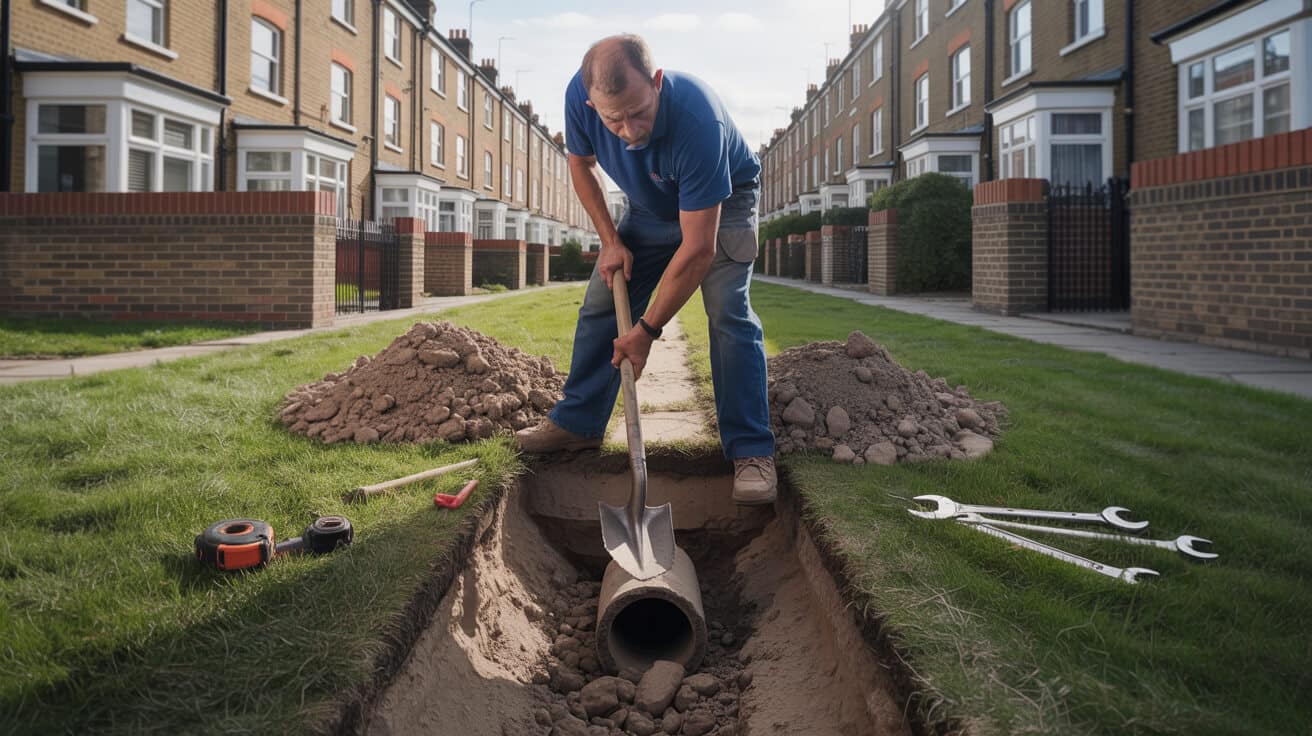 Heat Pump Grants and Incentives in 2025 – What You Need to Know
Heat Pump Grants and Incentives in 2025 – What You Need to Know

Are 2025’s Heat Pump Grants Really Easier—And What’s Tangibly Improved for Owners and Professionals?
Home and property owners have waited years for heat pump grants to go from wishful headlines to working reality. In 2025, the UK finally delivers: record funding, clearer rules, and a process led by professionals—not bureaucracy or guesswork—mean you get real savings with radically less friction. For the first time, the Boiler Upgrade Scheme (BUS) boasts a £295 million budget, handing up to £7,500 per installation, automatically paid to your installer rather than back to you weeks later (gov.uk). Even the pain points—like the notorious “can’t fit in terrace or block” problem after the 1-metre boundary rule—are neutralised; that regulation has been quietly scrapped for most homes and multi-units, making heat pumps workable almost everywhere (reuters.com).
Instead of DIY paperwork, owners, landlords, agents, and block or council managers now hand the whole admin chain to an accredited installer. The journey shifts from “form-filling roulette” to: survey booked, annotated quote reviewed, compliance checked, grant applied for automatically. You don’t chase forms—the system chases your savings.
Getting funding isn’t an uphill chase or blind gamble anymore—you start with a real survey, get your upfront price, and don’t touch a single grant form unless you want to.
Landlords and letting agents get locked-in benefits, too: multi-unit properties are now actively included rather than shut out, and council Warm Homes Plan invitations surface the funding for sites that would have hit dead ends last year. EPC or failed-insulation history? It’s no longer a one-and-done rejection—resetting and reapplying is the norm, with most owners getting eligibility confirmed on the second try.
The stress and guesswork are engineered out. If you can ask for a survey, review a detailed quote, and pick a certified provider, the most complex parts—eligibility documents, compliance, grant submission—are simply not your job anymore.
Which Heat Pump Grants, Subsidies, and Local Funding Really Apply in 2025?

2025 isn’t the one-scheme show it used to be. Yes, the Boiler Upgrade Scheme (BUS) remains king for most homeowners and landlords, but local councils, Scottish regional funds, and targeted offers are in open competition—pushing grant values higher and making blended support the new standard for property professionals.
- Boiler Upgrade Scheme (BUS): Up to £7,500 per system for air source or ground source heat pumps (*England and Wales*), claim coordinated directly by your installer with the price reduced on the spot ([ofgem.gov.uk](https://www.ofgem.gov.uk/environmental-and-social-schemes/boiler-upgrade-scheme-bus?utm_source=openai)).
- ECO4: Pays up to 100% of heat pump and insulation costs. Designed for homes with lower EPC or eligible benefits, but also used by social and private lettings for full fabric upgrades.
- Warm Homes Plan: Led by councils, with direct invitations going to postcodes, tenures, or EPC bands that qualify for higher support. Councils carry out outreach and paperwork, and can batch multi-property or estate instals.
- Home Energy Scotland: Offers up to £15,000 in grant/zero-interest loan, usable by homeowners, landlords, and tenants north of the border ([homeenergyscotland.org](https://www.homeenergyscotland.org/funding/grants-loans/)).
- Commercial/Portfolio: For those managing multiple units, non-standard, or listed/commercial sites, specialist grant pathways can stack or unlock even more at survey.
Combining BUS, local council, and (in Scotland) Home Energy Scotland grants means most owners and managers can offset the majority of the instal cost, and sometimes remove it entirely.
2025 Funding Scheme Snapshot
Targeted funding schemes for different owners and managers are compared below. Your eligibility nearly always improves when you combine installer-led advice with council or regional support.
| Scheme | Max Funding / Main Offer | Applies To |
|---|---|---|
| Boiler Upgrade Scheme | £7,500 per heat pump | Owners, landlords, agents—ENG, WAL |
| ECO4 | Up to 100% (system + fabric) | Low EPC, benefit qualifier, PRS, social |
| Warm Homes Plan | Full system/part system cost | Council-invited postcode or EPC, all UK |
| Home Energy Scotland | £15k grant/loan blend | Anyone in Scotland—owners, landlords, tenants |
Missing out on one doesn’t mean you can’t get another. A survey from an installer or council can reveal bundled or parallel funding you might never spot at the “quote shop” stage.
Who Actually Gets a Grant in 2025—And What’s Changed for Owners and Agents?
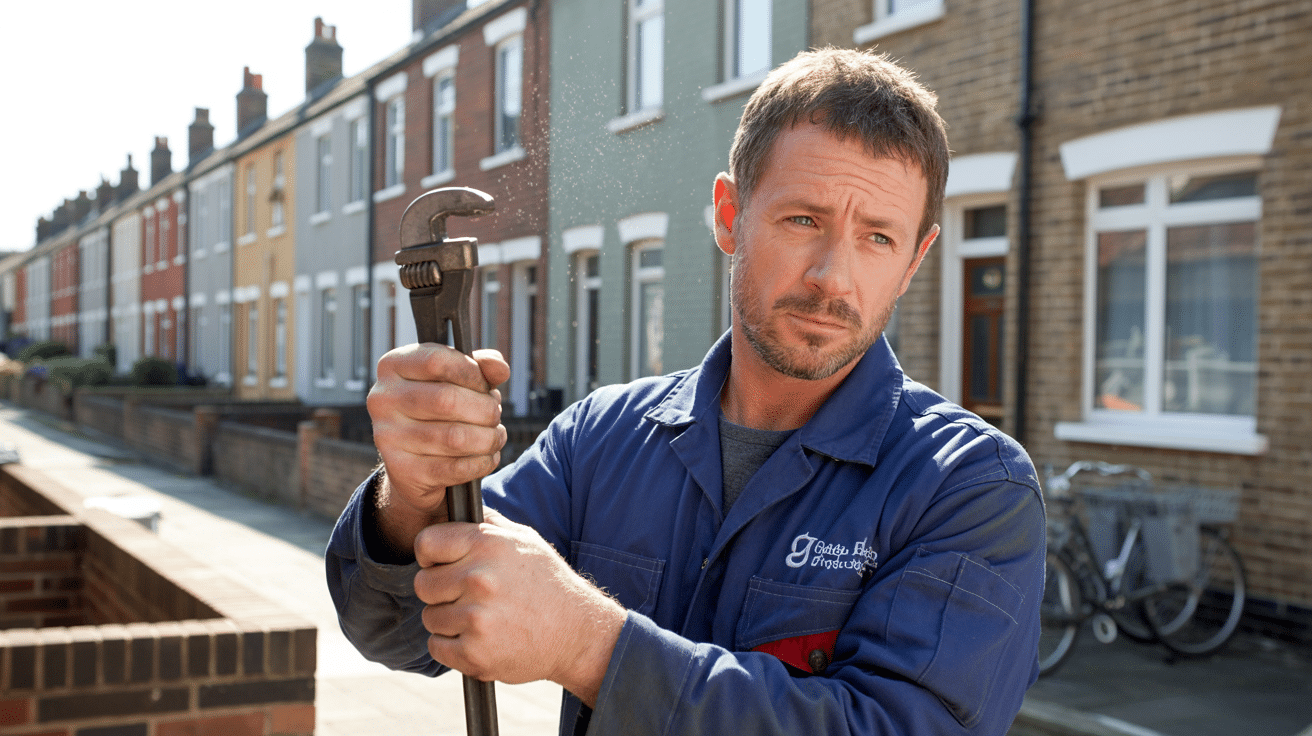
Eligibility in 2025 isn’t about jumping through mystery hoops—it’s a clear, survey-first process. Most property professionals, landlords, and homeowners now see eligibility decided by the system, not by guesswork or “who you know”.
- Control = eligibility: If you own, lease, or are formally responsible for the address, *your application can go ahead*, regardless of personal residence.
- Fuel replacement: BUS and similar grants require you to replace an existing fossil fuel heat source (gas, oil, LPG, old resistive electric). Upgrading a failed heat pump almost always qualifies.
- No income test on BUS: Anyone can apply, and your income isn’t even considered for the core scheme. Only some council/utility/Scottish offers ask about benefits or EPC rating.
- Flats and blocks in scope: With regulatory and process changes, even mixed-tenure blocks, leaseholds, and portfolios are viable. Complexity (e.g. permissions, metering) is solved by the installer/council.
- EPC and insulation now an enabler: A recent EPC and up-to-date insulation speed your application. Lapses or missing certificates can usually be fixed as part of the installation quote.
- Reset after rejection: If you were knocked back last year for insulation, EPC, or paperwork faults, *resetting and retrying is now encouraged*. “Repair and reapply” is the live culture.
Eligibility is engineered for maximum owner/manager clarity—if something blocks an application, your installer tells you, upgrades it, and re-files. Past failures aren’t penalties—they’re normal, expected, and fixable.
Three Direct Ways to Secure Eligibility in 2025
- Arrange a qualified survey: Anyone with ownership or management status can trigger a full eligibility and funding check.
- Agree to insulation/cert fix where flagged: Essential upgrades are now government-supported, not a self-funded “penalty”.
- Insist on MCS-accredited installers and full compliance: Only certified professionals unlock the grant. Skip the rogue quotes—your money (and tenancy, in let or block properties) depend on it.
The process puts progress before paperwork—you act, and the professionals do the admin.
I Was Rejected or Gave Up Last Year—Can I (and Should I) Try for Heat Pump Grants Again?
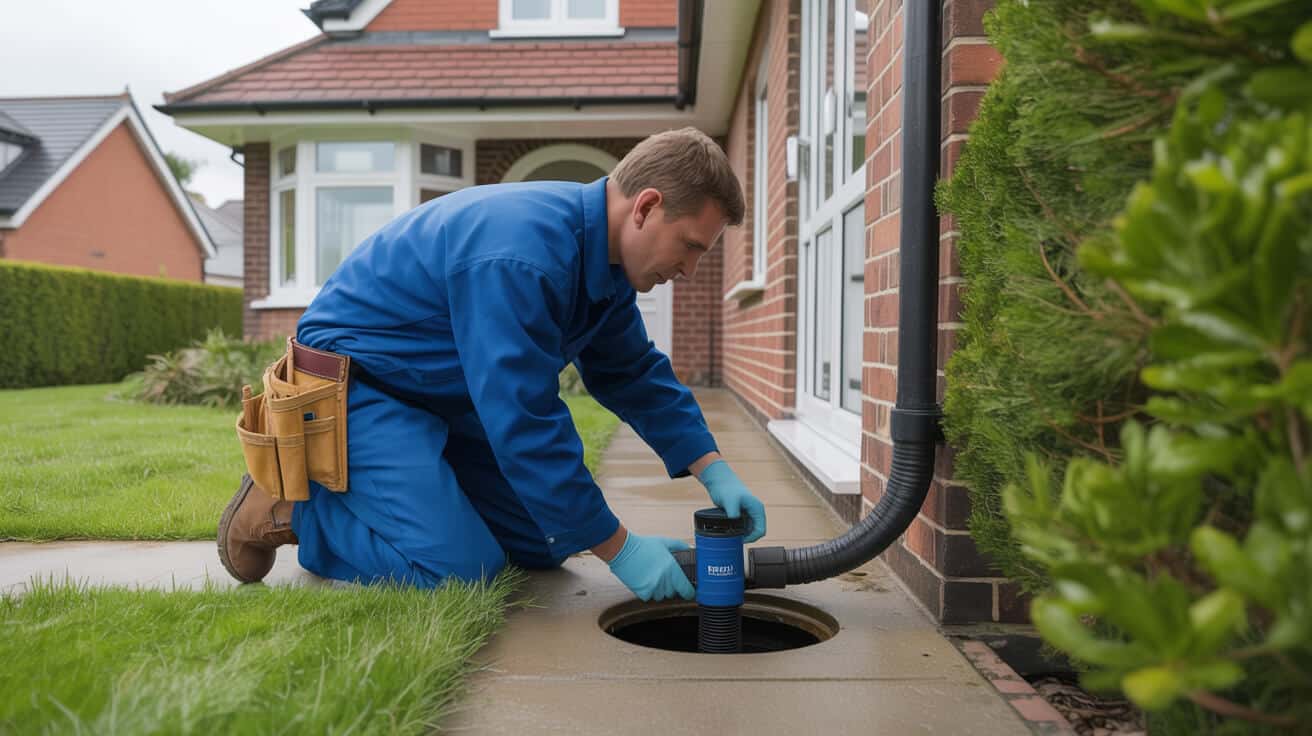
Last year’s buyers and agents faced a grim wall: failed paperwork, EPC confusion, missed insulation, and “computer says no” culture. In 2025, that wall is effectively torn down. Rejected owners and portfolios can reset—no marks, no penalties, fresh support.
- Installer or council now leads: The new norm is to start your enquiry with a certified installer or council team. They trace any past admin misfires, patch the EPC/insulation, and submit on your behalf. Paperwork is filed and managed by professionals.
- “Hard to treat” accelerator: Have a block or heritage property? Councils can now “champion” your application, speeding the eligibility review and pulling in extra help for technical or admin snags.
- All paperwork “faults” are fixable: Old EPC, missing insulation, or admin gaps are not a “no forever.” You can repair, resubmit, and get grant approval with no time-to-wait penalty.
- Vulnerable or tech-wary clients get hands-on help: Charities and regional energy advisors are paid to bridge the digital/documentation divide, handling every step—so age or access never blocks progress.
There’s no blacklist for grant failures—the fact that you tried last year only means your property record is in the system, making a reset and second attempt *faster* in practice.
Tactical Guide: Getting Back Into Grant Fast
- Start with a certified installer survey: They’ll cross-check old records and initiate eligible updates.
- Fix what made you fail: Update EPC/insulation or fill out the missing bits—engineering not admin is the focus now.
- Use council or charity partners: For special circumstances, council and charity “energy champions” can be your default admin handlers.
Repeat applicants report that getting funding after an initial stall is often quicker than first-timers—your site data is already in the system.
What Heat Pump Grants Actually Cover—and What’s Your Real Cost Now?
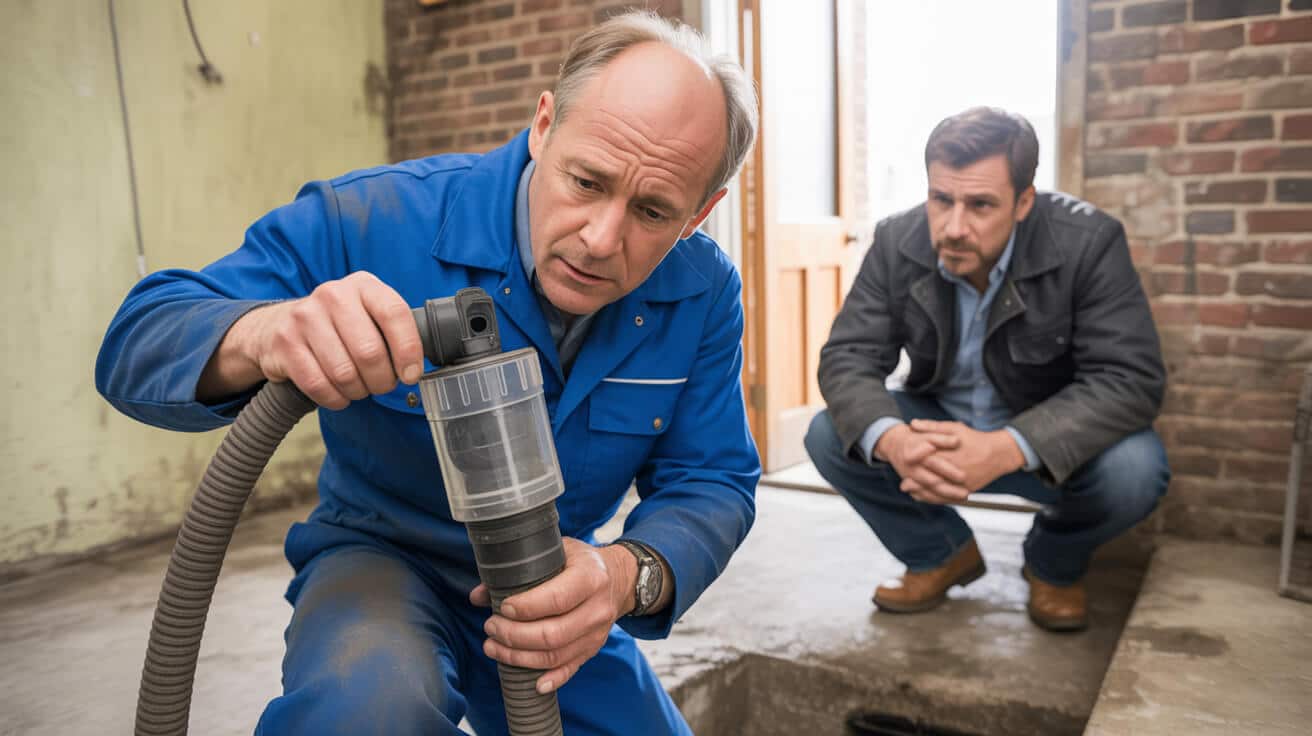
One of the biggest changes is transparency: grants pay the installer directly, paperwork is bundled by professionals, and your invoice shows the net price upfront. You aren’t left chasing money after the job or shocked by extra costs when it’s finished.
- BUS: £7,500 is knocked off the quote before you sign: , covering a lion’s share of typical instal costs in England & Wales.
- ECO4: Where applicable, covers full heat pump, insulation, and all required “fabric first” upgrades—often zeroing out your bill.
- Home Energy Scotland: Up to £15,000 (split grant/0% loan), paid directly to your job.
- VAT stays at 0%: No surprise tax until at least 2027—heat pumps, controls, and insulation stay VAT-free if grant-backed.
- Block/portfolio: stack funding: Multiple grants can “stack” for mixed-use, council, heritage, or complex sites with a single admin process.
Real-World Project Pricing—2025 Style
| Project Scenario | System Cost | Grants Applied | Actual Paid by Owner |
|---|---|---|---|
| BUS-standard owner (E/W) | £13,000 | £7,500 | £5,500 |
| Rural Scotland (Home Energy) | £15,000 | £13,000 | £2,000 |
| Benefit/EPC household (ECO4) | £12,000 | £12,000 | £0 |
For most households and managed blocks, typical grants erase over half the cost—and final invoices don’t balloon with admin charges, VAT, or ‘mystery add-ons’.
Installers typically supply bundled extras—warranty upgrades, handover packs, and training on controls—at no extra cost.
Do 2025 Grant-Funded Heat Pump Instals Actually Deliver Bill Savings and Comfort?
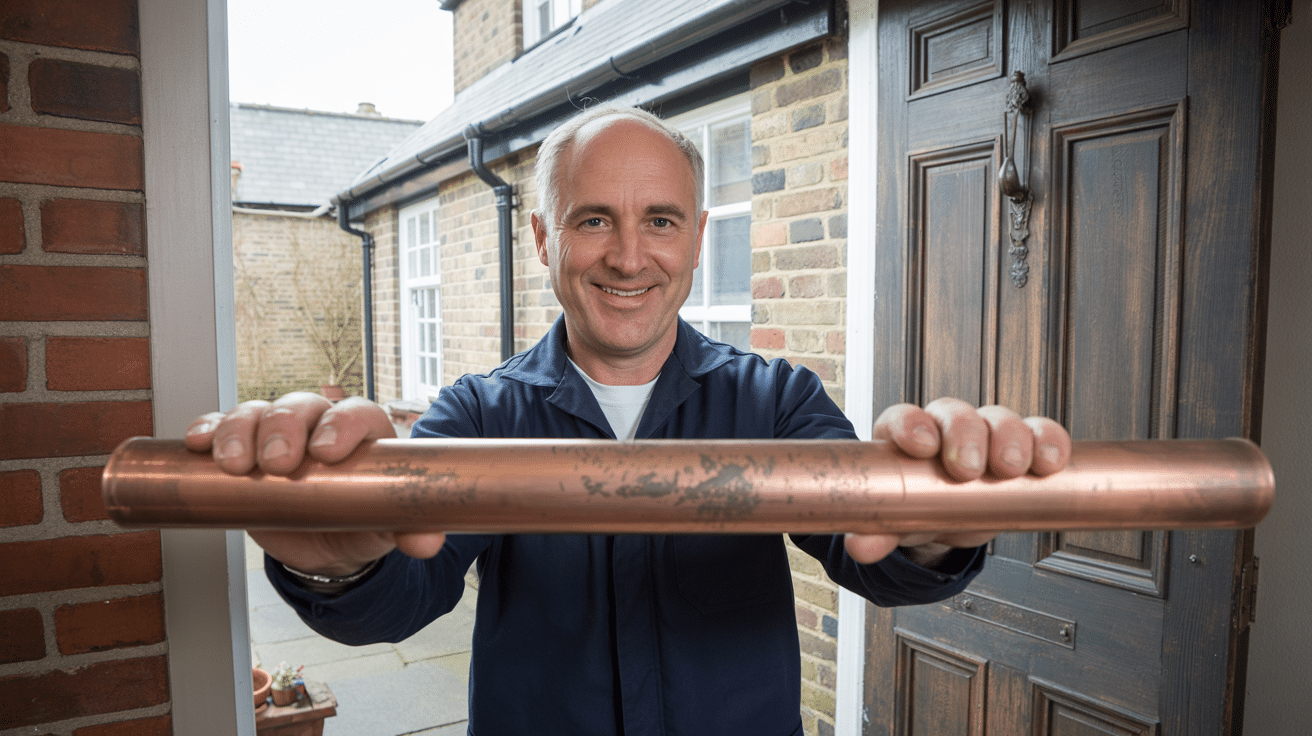
Cynics spent years saying heat pumps “don’t heat British homes” or “never save real money.” The 2025 crop of schemes fights back with evidence: aftercare, correct installation, and insulation-first rules make comfort and savings predictable.
- Bill savings: 20–40% is typical: when insulation is “A” grade and the heat pump is sized and set up properly ([hoa.org.uk](https://hoa.org.uk/advice/guides-for-homeowners/for-owners/heat-pump-grants/?utm_source=openai)). Under-insulation is the only major pitfall—and upgrades are now wrapped into most offers.
- Sound levels: MCS-certified heat pumps are as quiet as a fridge (<40dB), keeping neighbours and tenants happy even in blocks or terraces ([reuters.com](https://www.reuters.com/sustainability/climate-energy/britain-eases-rules-to-boost-heat-pump-uptake-2024-03-06/?utm_source=openai)).
- Room-by-room comfort: Upgraded radiators and heat-loss calculations banish draughty corners; “one size fits all” is obsolete. Every instal gets a site visit, not just a spreadsheet guess.
- Aftercare is non-optional: Documentation, warranty, user guidance, and MEES report support are provided every time—letting agents and managers have clear “file and forget” evidence for audits.
Early actors secure best grant rates, compliance records, and the goodwill of tenants and councils—making the investment an asset as well as a savings engine.
The difference now is that savings and comfort are engineered in—the property gets exactly what it needs, and owners aren’t left to ‘hope for the best’.
A Step-by-Step Walkthrough: How 2025’s Grant-Supported Heat Pump Process Works
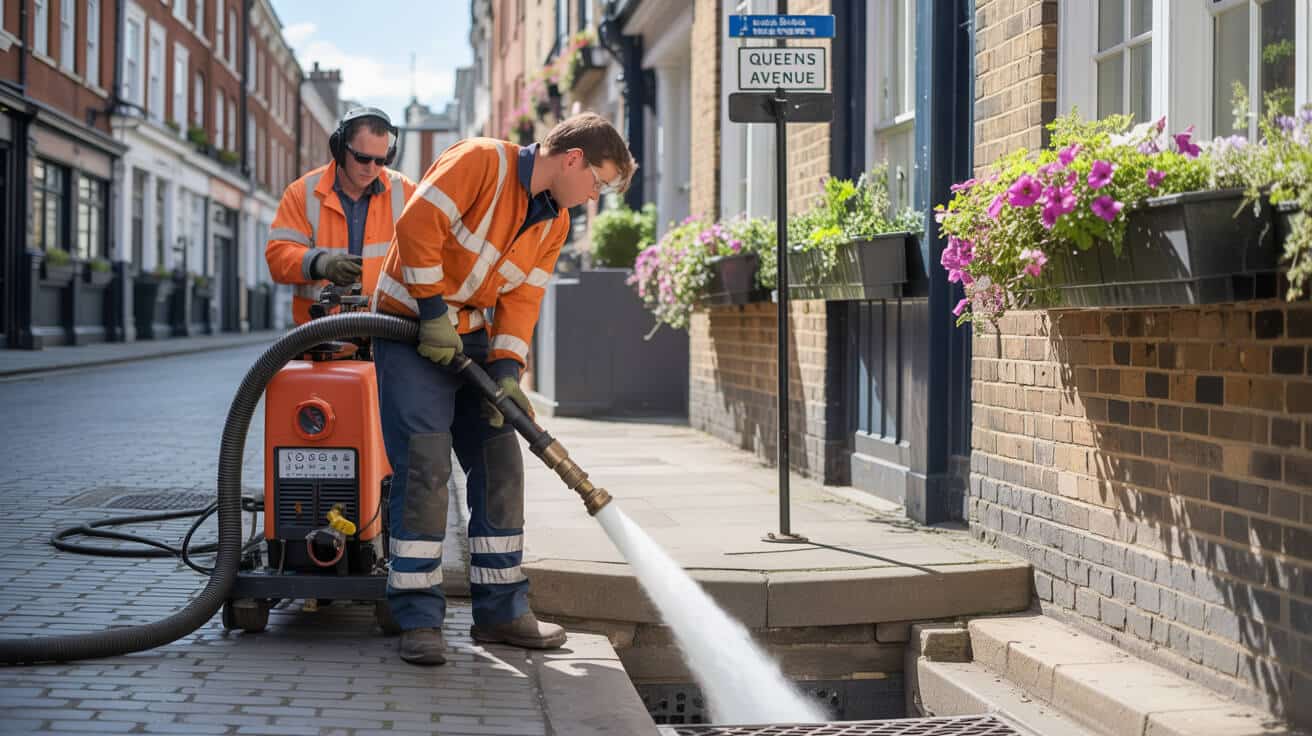
This isn’t the “Get a quote and start a paperwork maze” ordeal any more. The roadmap from idea to working, compliant heat pump breaks down as a series of hands-off, owner-friendly steps—no technical background or admin wrangling required.
Five Steps to a Funded, Fully Compliant Heat Pump
- Book a survey with a certified installer (e.g., Plumbers 4U): A site and EPC check triggers your grant eligibility mapping and insulation/support quotes.
- Approve any insulation/upgrade advice: Required works are bundled, and grant paths maximised on your updated package.
- Installer files all paperwork: The pro logs documents, manages compliance, and claims the grant on your behalf—you just check and agree to the annotated quote.
- System is installed and tested: Aftercare, warranty, and safety paperwork are handled; you get a handover and digital compliance pack for future audits.
- Aftercare and support: Service reminders, MEES/EPC documentation, and warranty claims are all logged and tracked by your instal partner.
Block or portfolio managers can run batch property upgrades; councils and agents collaborate to simplify logistics, cut admin, and defend grant eligibility for every site.
Multi-property and block upgrades now mean one admin, one grant stack, and file-and-forget management support—letting you prove compliance without trying to ‘DIY’ this for every address.
Why the Real Barriers to Heat Pump Grants Are Down—And What Still Matters

For years, the “headline” promise of grants was torpedoed by admin, diagnostic confusion, and exclusion of blocks or portfolios. In 2025, every meaningful friction point has a professional answer, and the funding chains are designed to reward property stewards, not just DIY optimists.
- Admin is handled by pros: The rule is installer-, council-, or charity-first for eligibility and submission—you’re a sign-off partner, not a paperwork-manic.
- Insulation/EPC are “yes triggers”, not barriers: Lapsed paperwork or sub-par insulation trigger a bundled fix, not a rejection. Upgrades are funded, not penalised.
- Vulnerable owner/tenant support is system-built: Councils and regional charities have specialist champions for every at-risk group, ending the “too complex” excuse.
- Quotes are annotated and transparent: Owners, agents, landlords—all see exactly which portions are grant-backed, VAT-free, or require a top-up.
- First-mover advantage: Budgets are capped; early actors lock in best rates, audit evidence, and a competitive edge in MEES/EPC regimes. All funding and VAT promises come up for review after 2025.
If you want speed, support, and no unforeseen admin, book with qualified pros early—those who acted late last year faced quotas closing, backlogs forming, and more paperwork headaches.
Leadership and Legacy for 2025 Owners/Managers
- MEES/EPC audit trail: ready for rentals, council review, or sale
- Landlords and agents: log master paperwork, warranty, and compliance support by property, not per tenant
- Reputable stewardship: show your board, tenants, or community that you’re not just reactive, but *future-resilient*
- No “unknowns” at invoice or audit—this year, transparency is standard
Upgraded sites deliver not just savings, but visible diligence—boosting reputation, compliance, and market value at once.
Secure Your 2025 Heat Pump Upgrade with Plumbers 4U—Full Funding, Zero Bureaucracy
Skip the grant lottery, form-chasing, and jargon-laden quotes. With an accredited national provider like Plumbers 4U (TrustMark, WRAS, MCS), you get every survey, funding application, compliance form, warranty, and aftercare step handled in one frictionless journey (trustmark.org.uk). Forget waiting for refunds or wrangling with costing extras—the quoted price has all grants subtracted, the upgrades rolled in, the paperwork ready for your rental, sale, or council audit.
Take advantage of the most accessible funding system in UK history.
Book your professional, hands-off survey with Plumbers 4U now—and future-proof your portfolio, comfort, and compliance reputation in a single step.
Savings, standing, and comfort all start with a no-stress, professionally managed heat pump upgrade—delivered right the first time, by Plumbers 4U.
Frequently Asked Questions
Who benefits from 2025 heat pump grants—and what’s changed for flats, blocks, and repeat applicants?
Every corner of the property market is now in play for heat pump grants in 2025. If you’re a homeowner, landlord, block or estate manager, letting agent, commercial building owner, or even handling multiple mixed-use assets—you’ve moved from “maybe eligible” to “definitely on the radar.” The rules no longer block leaseholders, rural residents, or those who previously stalled out over EPC, insulation, or tricky paperwork. Failed last year? You’re not disqualified—2025 grants reset the clock, letting you fix any gaps as part of the process, not receive a blanket “no.” Flats, ex-local authority stock, and entire blocks, whether council- or privately owned, fall under the same umbrella: if a building is swapping fossil fuel for a compliant heat pump with a proper upgrade plan, direct support is on the table.
Eligibility isn’t about perfection anymore; it’s about being willing to upgrade. The door stays open until your building is future-ready.
Which regulatory and EPC changes are most important now?
- EPC remains key: —but if your rating is too low (or expired), most schemes fund or bundle the re-check with your application.
- Insulation or ventilation “fails” can be sorted as part of the upgrade, not as a reason to turn you away.
- Owner-occupiers, private and portfolio landlords, block managers, and commercial freeholders can all apply—no matter your previous status.
Are there income or benefits tests under current rules?
- The Boiler Upgrade Scheme (BUS) is universally accessible—no income or benefits screening needed.
- ECO4, councils, and HES Scotland do focus on low-income or vulnerable residents, but more flexible “health and wellbeing” routes mean you can qualify on non-financial grounds, like building safety or comfort needs.
- Landlords are free to claim per eligible property—and for blocks, staged registration is expected, not penalised.
How do grant “stacking” and multi-funder strategies cut your real costs in 2025?
Savvy owners and managers in 2025 can layer national schemes (like BUS and Home Energy Scotland), local council initiatives, and energy supplier programmes in ways that were virtually impossible a year ago. For most homes and small businesses in England and Wales, the £7,500 BUS grant combines seamlessly with 0% VAT relief until at least March 2027. In Scotland, up to £15,000 per property is available, especially if you take a loan/grant split that funds deep retrofit. ECO4 can wipe out the entire bill for homes with low EPC or qualifying benefits—a huge leap for landlords and social housing teams.
One new trend: hybrid “block approaches” mean you can batch-apply for a whole group of properties. Rather than juggling isolation, differing grant windows, and unclear rules, your installer works out a plan that aligns paperwork, timelines, and installer scheduling, securing maximum funds with minimum drama.
How does multi-grant funding really work for portfolios?
- National and local council grants can be combined—as long as each property or building phase meets the rules.
- 0% VAT applies universally on qualifying upgrades (not just on the system: controls, insulation, even handover packs are typically included).
- Council “top-up” or Warm Homes campaigns often run alongside BUS/ECO routes, further lowering residual payments.
- Installers take responsibility for synchronising paperwork—avoiding double-claiming pitfalls and fast-tracking admin for each phase.
A premium grant strategy is like having a financial lifeline for every property—stacking isn’t just a loophole, it’s the new norm for smart owners.
What’s the sequential process to secure a heat pump grant (especially for multifamily, mixed-use, or tough sites)?
The 2025 instal path is all about visibility and control. You’re expected (not just allowed) to start with a site-wide or building-specific survey from an MCS-accredited installer or their council/energy utility partner. This on-site assessment double-checks EPC, insulation, vulnerable residents, communal zone access, and regulatory paperwork. Missed a standard? That triggers a funded intervention, not exclusion—a clear “fix and go” logic.
Landlords or managers with portfolios or blocks benefit from phased filing: each property or floor can instal in sequence, unlocking fresh grant eligibility with every stage. After approval, the grant sum is deducted from your invoice before any balance hits your account—so you’re not playing middleman for government or council money.
The modern grant sequence, demystified:
- Step 1: Book a no-obligation survey for your house, flat, or full block. Council or energy partner can join as needed.
- Step 2: Review the multi-point action plan—covering all upgrades, energy improvements, controls, and regulatory action.
- Step 3: Your installer submits all applications, triggers funding, and agrees a payment timeline that reflects grant deduction first.
- Step 4: On instal, warranty, compliance evidence, and a full aftercare guide are handed over—every owner, landlord, or manager receives a tracked digital pack.
- Step 5: You get reminders before compliance or upgrade cycles hit—future grant rounds are easier, not harder, for repeat applicants.
Prepping before the survey—what matters most?
- Have an accessible EPC (or request one bundled in).
- Compile address/access/tenancy info, especially for blocks or shared-title properties.
- Nominate a contact for site access and council/utility comms.
What do 2025 grants truly cover, and where might you still pay out of pocket?
In almost every property scenario, the combination of BUS, ECO4, home nations’ packages, and local council schemes covers most, if not all, up-front costs. For a standard owner-occupier, BUS drops a typical £13,000 system to around £5,500—that’s before considering insulation grants, which may erase the balance. ECO4 can wipe out the bill entirely for qualifying homes, funding upgrades beyond the pump itself: insulation, pipework, thermostatic controls, and even urgent heating repairs are rolled in. Large blocks and social housing assets have seen council contributions reach £30,000-plus for multi-dwelling upgrades.
Just as important, modern grants insist on robust warranties, end-user training, and digital compliance evidence—features that used to add hidden hundreds to final invoices. Commercial and portfolio landlords can apply for every unit or phase, with deductions applied centrally, slashing admin time across the board.
Real-world scenarios—what remains after grants?
| Scenario | Typical System Cost | Total Grant(s) | Owner Pays |
|---|---|---|---|
| House, BUS + 0% VAT | £13,200 | £7,500 BUS | £5,700 |
| Scottish landlord or homeowner | £15,000 | Up to £13,000 | ~£2,000 |
| ECO4 for full block/portfolio | £12,000 | Up to £12,000 | £0 |
| Council block, Warm Homes | £25,000 | £25,000+ | £0 |
- Any supplementary costs usually involve deep, custom work or owner-driven spec upgrades (e.g., designer controls, ultra-premium insulation, or landmark planning costs).
- Always ask your installer for an up-front, line-item quote—no more mysterious shortfalls or surprise charges down the line.
Grants now hit everything from audit pack to aftercare—out-of-pocket spend is shrinking so sharply, budgets regain control.
Are heat pump grants really viable for complicated, old, or “hard to treat” homes in 2025?
Older properties and architecturally awkward sites have shifted from “off-limits” to “priority.” Advanced heat pump models, tailored insulation fixes, and new planning allowances mean historic, listed, or visually sensitive buildings are no longer blocked by compliance or admin headaches. Most owners in these segments can expect a 20–40% yearly energy drop compared to outdated oil, LPG, or storage systems. Grant-funded upgrades tackle cold bridges, room-by-room zoning, and sub-40dB noise levels (eliminating classic neighbour disputes or planning refusals).
Landlords and block managers get downloadable compliance packs on handover, covering EPC, MEES, maintenance, and warranty—simplifying everything from resale value to lettings and inspections. Repeat upgrades after year one no longer require fresh evidence or full re-application. That myth that “old buildings can’t go green” is out. 2025’s system is built for complex assets.
What do post-installation benefits look like?
- *Full-room heat balancing—no more persistent cold spots or draughty “dead ends.”*
- *Instant compliance evidence: MEES, EPC, warranty stored digitally for audit, letting, or resale.*
- *Extremely low operational noise—below most dishwashers—so nearly any location meets planning rules.*
- *Property portfolios and challenging blocks become “upgrade-ready,” driving tenant satisfaction and long-term value.*
How do bulk, estate, and block installations transform admin, compliance, and value for owners and managers?
For landlords, housing authorities, letting teams, and property managers, managing upgrades phase-by-phase is now the gold standard. Rather than applying for each tenancy or flat in isolation, you collaborate with a main installer like Plumbers 4U to process applications, schedule instals, and aggregate audits for an entire site or cluster. This method enables faster access to additional grant rounds, centralised paperwork, and dramatically simplified aftercare (warranty, EPC, compliance reminders handled from one dashboard).
Central management means each address still gets its own compliance and warranty pack, but managers or owners stay hands-off: no more repeated paperwork, tenant chase, or date tracking. For letting agents and housing associations, these block strategies demonstrate proactive leadership to clients, regulatory visitors, and green-accreditation stakeholders.
Why should you embrace bulk upgrades in 2025?
- *Unlocks higher grant value and faster funding: block instals attract additional support from both council and national programmes.*
- *Audit-ready documentation: everything is organised, accessible, and up-to-date for every property and tenancy.*
- *Portfolio-strength reporting: show tenants, buyers, and authorities progress at a glance.*
- *Aftercare is predictable: get automated reminders, one-click compliance packs, and direct tenant support if issues arise.*
What is the best timing and action plan to secure a heat pump grant in 2025?
If you want to avoid funding delays, VAT rule changes, or the risk of missing out altogether, booking a survey with an MCS-accredited installer is the essential move. From there, everything flows—eligibility, paperwork, grant stacking, insulation upgrades, and aftercare are fully managed. The Plumbers 4U service model is to coordinate portfolio upgrades, batch councils and admin, and pre-clear routes for difficult or “outlier” properties—minimising delays and maximising ongoing compliance. Funding windows close as VAT and government targets shift: acting early secures your spot and locks in maximum support for every building you manage.
When you control your survey date, you control your comfort—and your place in the compliance queue—before anyone else.
Secure your survey with Plumbers 4U today to guarantee funding, unlock all available upgrades, and ensure a compliant, future-proof property—no matter your starting point.


